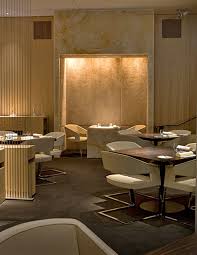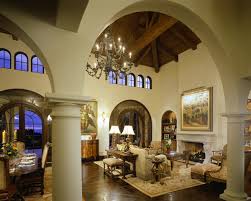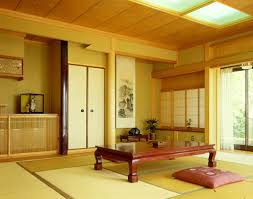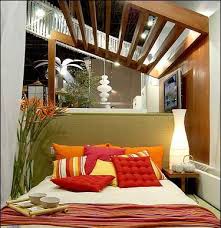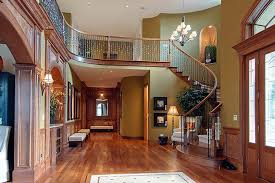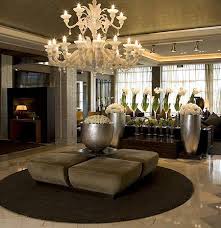
1) Limit patterns to pieces that can easily be changed out. In short, rather than choosing a graphic patterned tile for your kitchen floor, choose patterned dish towels, potholders, dishes, placemats and kitchen accessories. The secret to using pattern is to use it in small doses that will not be difficult or expensive to change when the pattern becomes passe.
2) In decorating living rooms and dens, you’re better off opting for pattern in smaller furniture pieces rather than anchor pieces. Instead of a patterned couch, choose patterned pillows. Or think about adding pattern to an accent chair that can later be easily re-covered or slip-covered. Recently, many modernists have added pattern to their living spaces through patterned lampshades.
3) Consider a mural. Want an up-to-the-minute pattern in your home, but you want to be able to change at the drop of a hat? Consider incorporating pattern into your home through a painted pattern or wall decals (check out patterns offered by the French firm, Domestic, at left). The big plus is that painted pattern is easier to change than painted wall paper, and wall decals, (at least in theory) can just be peeled off. Also, just a little bit goes a long way. It’s enough to paint just one accent wall or entryway with a dazzling pattern to dramatic effect.

4) Think about incorporating pattern in more subtle ways. What does that mean? How about a wooden floor installed in a herringbone pattern, or a fireplace incorporating an interesting tile pattern? What about a room divider or bookshelf built in a uniquely patterned way? Pattern does not have to mean pattern found on fabric, but can extend to patterns that are actually part of walls, floors, and furniture.
5) Stick to classics. It’s oh-so-tempting to choose up-to-the-minute colors and patterns that seem so current today. But the problem with all the neon colors and graphic prints is that they also quickly go out of style. The easiest way to handle the problem is to opt for patterns that have proven themselves to be classic over time. Patterns that fall into this category include the prints and designs found in oriental rugs and tribal kilims, most stripes, and the pattern found in cowhide, zebra and other animal skins.
6) Use pattern judiciously. Even very bold patterns that will date fast can be used and enjoyed when they are used carefully. That means opting for less pattern rather than more. You probably don’t want to add pattern through drapes or curtains, which tend to dominate a large visual expanse. Instead, how about a boldly patterned footstool, which uses much less visual space? Using pattern in smaller amounts will give your pattern more staying power. Even if a pattern never becomes a classic, in small doses it is likely to work well for many years to come.




